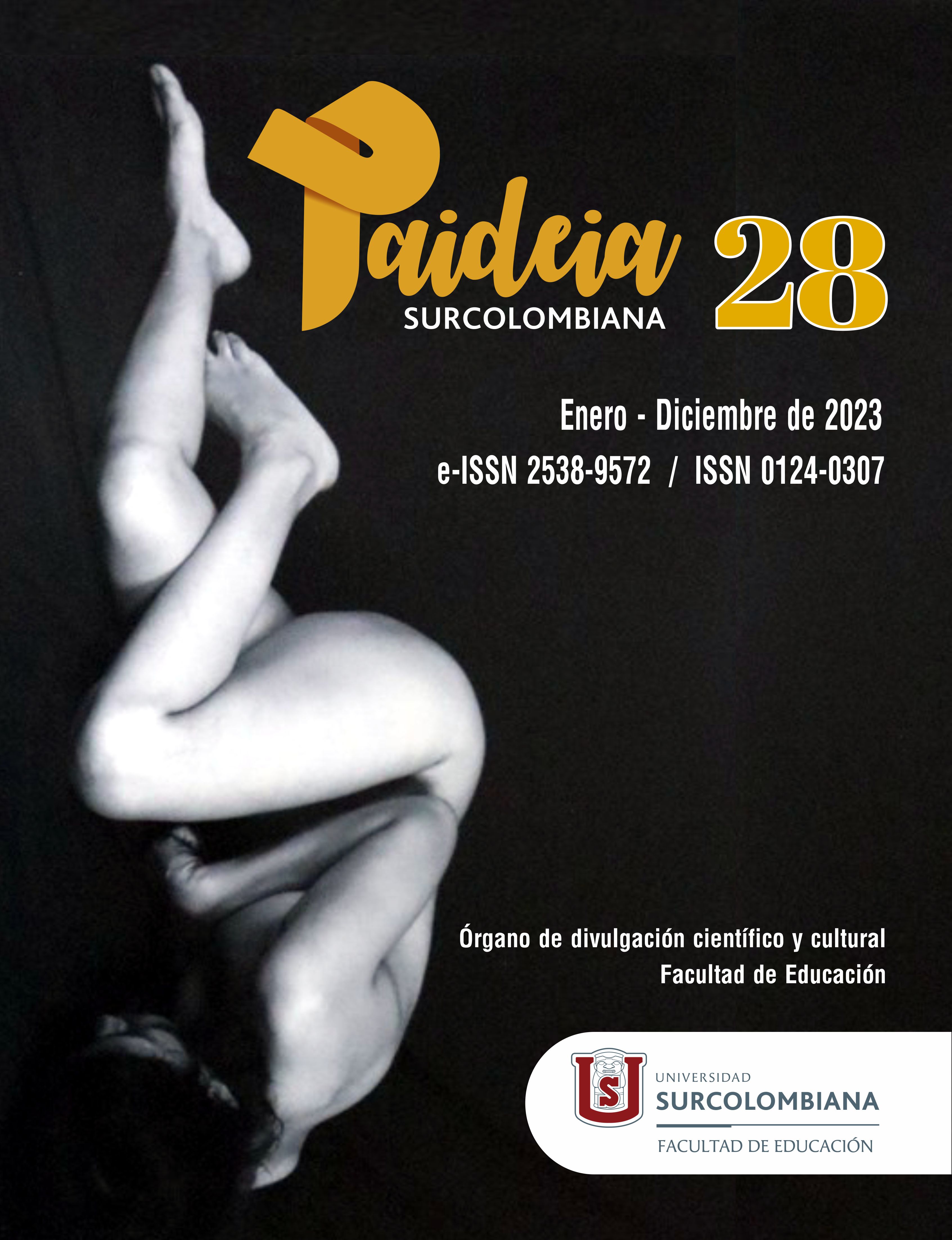Methodological proposal for linking ancestral mathematical knowledge of the Males Reservation, to the formal mathematics curriculum of the 6th grade of basic secondary education
##plugins.themes.bootstrap3.article.main##
This research arises as a result of the different needs that emerge in the intercultural educational context and that are manifested in different ways in the population of the indigenous community of the town of Males, in the municipality of Córdoba, department of Nariño, southwestern Colombia. Starting from the awareness of the importance of ancestral knowledge and practices, it is intended to generate, from the process developed in the project, a methodological proposal that guides the steps to follow to achieve the inclusion of ancestral mathematical knowledge and practices of the indigenous reservation de Males in the formal curriculum of the 6th grade students of the Nuestra Señora de Fátima educational institution. With this process of articulation and integration of these practices and knowledge into the formal curriculum, a new way of teaching and learning the mathematical contents are proposed, making them diverse and practical, all this without neglecting the formal concepts of the area.
The process begins with the identification of the knowledgeable people and teachers who have the knowledge, credibility and acceptance by the community in general, in order with their support, to identify which are the ancestral mathematical practices and knowledge of the community that are according to the contents of the 6th grade. This research will have a qualitative approach and the type of study will be ethnographic. The previous information will be obtained through participatory observation and formal information through the interview.
Downloads
##plugins.themes.bootstrap3.article.details##
Asamblea Nacional Constituyente. (1991). Constitución Política de Colombia. Presidencia de la República. https://dapre.presidencia.gov.co/normativa/normativa/Constitucion-Politica-Colombia-1991.pdf
Ávila, A. (2014). La etnomatemática en la educación indígena: así se concibe, así se pone en práctica. Revista Latinoamericana de Etnomatemática, 7(1), 19-49. https://www.redalyc.org/articulo.oa?id=274030901002
Blanco, H. (2008). La integración de la etnomatemática en la etnoeducación. Encuentro Colombiano de Matemática Educativa. http://funes.uniandes.edu.co/874/1/11Conferencias.pdf
Bishop, A. (1991). Enculturación matemática. La educación matemática desde una perspectiva cultural. Paidós. https://mmsrcapital.files.wordpress.com/2015/03/1991-enculturacic3b3n-matemc3a1tica-alan-j-bishop1.pdf
Carneiro, R. (2012). Processos formativos em Matemática de alunas-professoras dos anos iniciais em um curso a distância de Pedagogia. [Tese de Doutorado em Educação]. Universidade Federal de São Carlos. https://repositorio.ufscar.br/bitstream/handle/ufscar/2289/4798.pdf?sequence=1&isAllowed=y
D'Ambrosio, U. (1996). Da realidade a ação: Reflexões sobre a educação e matemática. Campinas: Universidade Estadual de Campinas. https://books.google.com.co/books?id=yj3dTmKneVoC&printsec=copyright#v=onepage&q&f=false
Freire, P. (1997). La pedagogía del oprimido. Editorial Siglo XX.
Gashé, J. (2010). De hablar de educación intercultural a hacerla. Universidad Nacional de Colombia. https://doi.org/10.5113/ma.1.9414
Gerdes, P. (2010). Da etnomatemática a arte-design e matrizes cíclicas. Editorial Auténtica. https://books.google.com.co/books?id=gCmIAwAAQBAJ&printsec=frontcover&hl=es&source=gbs_ge_summary_r&cad=0#v=onepage&q&f=false
Izquierdo, M. (2018). Educación en contextos multiculturales: experiencia etnoeducativa e intercultural con población indígena del Resguardo Embera Chamí. Zona Próxima, (29), 3-22. http://www.scielo.org.co/pdf/zop/n29/2145-9444-zop-29-3.pdf
Ministerio de Educación Nacional. (2012). Estándares básicos de competencias en matemáticas. Potenciar el pensamiento matemático: ¡un reto escolar! Bogotá D.C. https://www.mineducacion.gov.co/1759/articles-116042_archivo_pdf2.pdf
Sampieri, R., Collado, C., y Baptista, P. (1997). Metodología de la Investigación. Editorial McGraw - Hill. https://www.uv.mx/personal/cbustamante/files/2011/06/Metodologia-de-la-Investigaci%C3%83%C2%B3n_Sampieri.pdf
Tejedor, J. (1986). La estadística y los diferentes paradigmas de investigación educativa. Educar, (10), 79-101. https://raco.cat/index.php/Educar/article/view/42173/90071
Universidad Pedagógica Nacional México. (2010). Matemática y educación indígena II. Guía de trabajo. Universidad Pedagógica Nacional México. http://200.23.113.51/guias/mei 2.pdfAC














